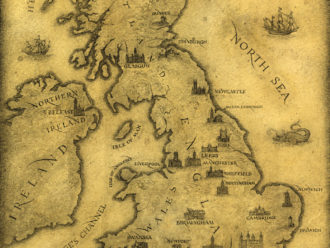The significance of the Arab Spring should not be underestimated. While disruption in Syria itself may not be hugely impactful on markets (it is not a major oil producer), its effects are being felt well beyond the Arab world. The threat of a much broader conflict remains real and would have a very significant impact on global oil supply and prices. Not only would that further dampen the fragile global recovery, it would increase upward pressure on food prices, thereby fuelling civil unrest on a much greater scale globally.
Turkey, an increasingly important force in Europe, is already seeing heightened tension along its border with Syria and a massive influx of refugees. “The tensions have exacerbated natural divisions in other countries like Turkey,” says Colin McLean, managing director, SVM Asset Management. “Refugees compete for resources and can destabilise politics. Tensions are already high with skirmishes seen along the Syrian borders with both Turkey and Israel. The civil war has also sparked deadly sectarian violence in Lebanon.”
Furthermore, the Iranian threat is considerable, particularly if the US does eventually carry out military strikes in Syria. Glyn Owen, investment director at Momentum Global Investment Management (MGIM), says: “Russia’s initiative has diminished the risk of further escalation, but we’re not out of the woods. The US could still land missiles in Syria, which has no hope of retaliating. The big question is how Iran will react. What weapons does Hezbollah have in Lebanon? Do they have chemical weapons?”
Iran is not only a key Assad supporter, but also a significant influence on the Strait of Hormuz through which around 17 million barrels of oil (roughly 20% of total world supply) travel daily. Around 10% of that is destined for the US, although most ends up in Japan, China and India. In 2010 Roger Stern, a professor at the University of Tulsa National Energy Policy Institute estimated the US had spent $8trn protecting the Strait since 1976. In 2008 Iran threatened to seal off the Strait if it were attacked by the US or Israel, which if allowed to come to fruition would wreak havoc on oil markets across the globe.
The outlook for oil prices already looks grim. The International Energy Agency (IEA) forecasts growth in global demand will remain flat at 895 thousand barrels per day (kb/d) for 2013 then rise to 1.1 mb/d in 2014. Supply, however is estimated to have fallen by 770kb/d in August, due to tensions in Syria and Libya. More broadly, the Arab Spring will likely rumble on for many years yet. The result will be continued upward pressure on the oil price and volatility across most asset classes.
- 1
- 2
- »




Comments